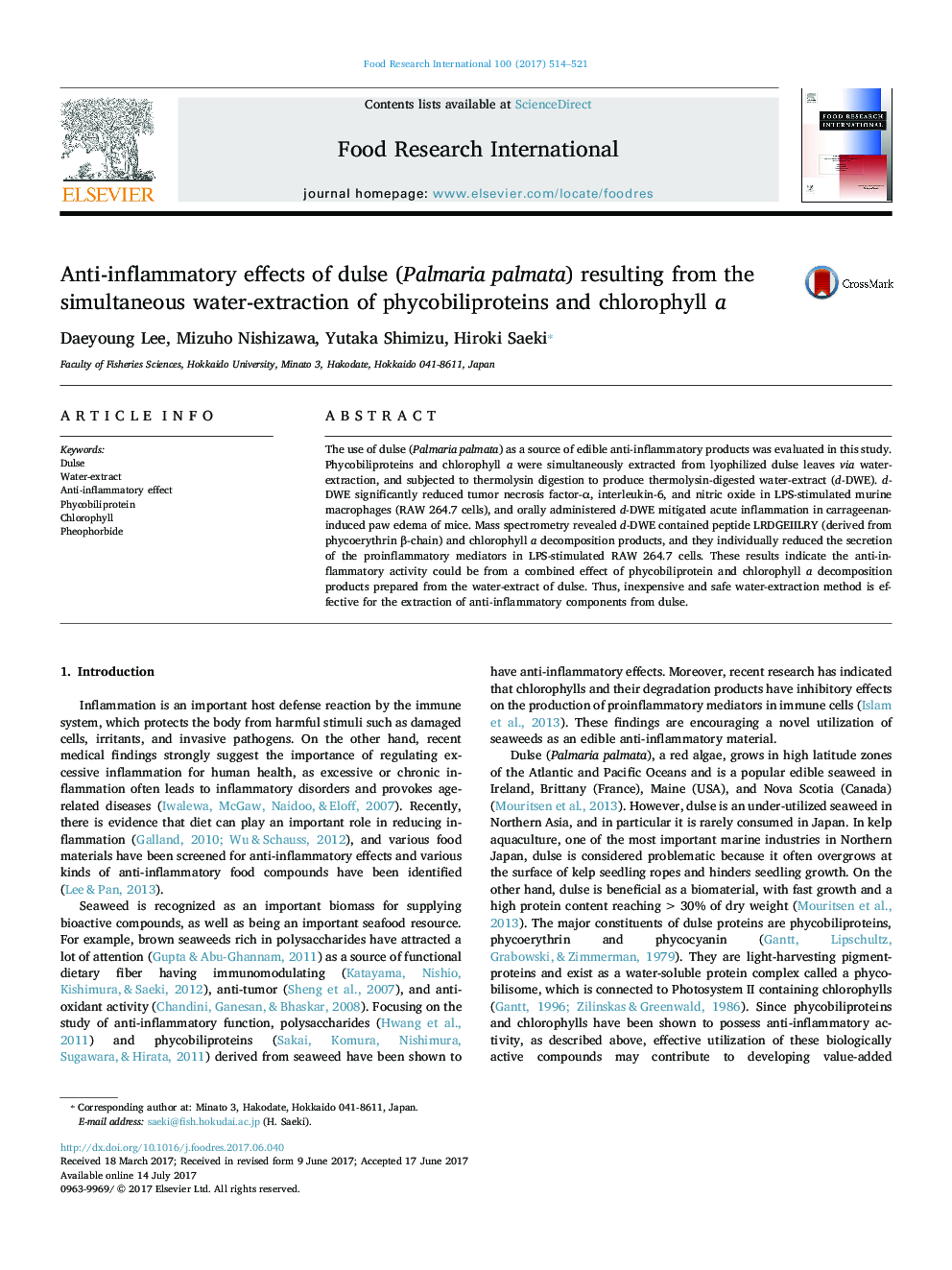| Article ID | Journal | Published Year | Pages | File Type |
|---|---|---|---|---|
| 5768002 | Food Research International | 2017 | 8 Pages |
â¢Water extraction of extracted from lyophilized dulse leaves contained phycobiliproteins and chlorophyll a.â¢The thermolysin-digested water extract showed anti-inflammatory activity in vitro and in vivo.â¢Decapeptide derived from phycoerythrin β-chain and chlorophyll a decomposition products showed anti-inflammatory activity.â¢The anti-inflammatory activity would be caused by phycobiliprotein and chlorophyll a decomposition products.
The use of dulse (Palmaria palmata) as a source of edible anti-inflammatory products was evaluated in this study. Phycobiliproteins and chlorophyll a were simultaneously extracted from lyophilized dulse leaves via water-extraction, and subjected to thermolysin digestion to produce thermolysin-digested water-extract (d-DWE). d-DWE significantly reduced tumor necrosis factor-α, interleukin-6, and nitric oxide in LPS-stimulated murine macrophages (RAW 264.7 cells), and orally administered d-DWE mitigated acute inflammation in carrageenan-induced paw edema of mice. Mass spectrometry revealed d-DWE contained peptide LRDGEIILRY (derived from phycoerythrin β-chain) and chlorophyll a decomposition products, and they individually reduced the secretion of the proinflammatory mediators in LPS-stimulated RAW 264.7 cells. These results indicate the anti-inflammatory activity could be from a combined effect of phycobiliprotein and chlorophyll a decomposition products prepared from the water-extract of dulse. Thus, inexpensive and safe water-extraction method is effective for the extraction of anti-inflammatory components from dulse.
Graphical abstractDownload high-res image (266KB)Download full-size image
